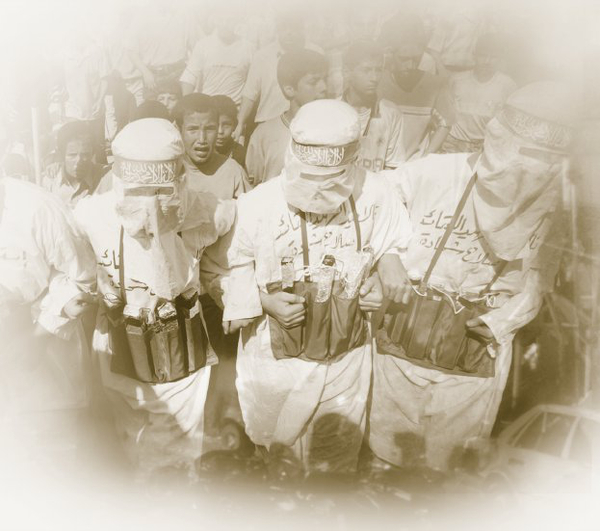
Print Files: A4 Size (pdf), Text (txt).

The Citizens Commission on Human Rights (CCHR) was established in 1969 by the Church of Scientology to investigate and expose psychiatric violations of human rights, and to clean up the field of mental healing. Its co-founder is Dr. Thomas Szasz, professor of psychiatry emeritus and an internationally renowned author. Today, CCHR has more than 130 chapters in over 30 countries. Its board of advisors, called Commissioners, includes doctors, lawyers, educators, artists, business professionals, and civil and human rights representatives.
CCHR has inspired and caused many hundreds of reforms by testifying before legislative hearings and conducting public hearings into psychiatric abuse, as well as working with media, law enforcement and public officials the world over.
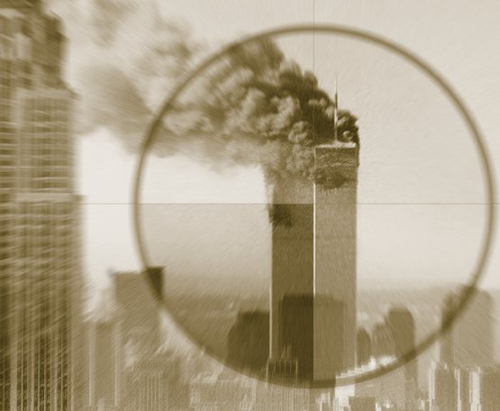
The terrorist attacks on the twin towers of New York's World Trade Center and the Pentagon in Washington, D.C. on September 11, 2001, will never be forgotten.
Unthinkably violent acts shock us all. What kind of mindset methodically plans and executes mass murder - with utter disregard for humanity? What kind of person could be so cold-hearted and destructive - and be willing to give up his own life in the process? Yet some "experts" claim that today's terror merchants are no more irrational than you or I - that we all have "demons" within.
Beware these experts, because their claims are blatant falsehoods. Terrorism is created; it is not human nature. Suicide bombers are made, not born. Terrorism is the result of madmen bent on destruction, and these madmen are typically the result of psychiatric or psychological techniques aimed at mind and behavioral control. Suicide bombers are psychologically indoctrinated to murder innocent people without compassion.
Part of that process involves the use of mind-altering psychiatric drugs. Consider the roots of the word "assassin." In the year 1090, Hasan ibn al-Sabbah founded a terrorist group called the Ismaili Order in a mountain fortress, south of the Caspian Sea. To train followers as killers, they were first drugged unconscious and then taken to a beautiful garden filled with luxuries and women. They were woken to enjoy the "delights" and then drugged again and returned to the "Grand Master" overseeing their training. He would assure them they had never left his side, but had merely experienced a taste of paradise that awaited them, if they successfully carried out a killing assignment. Because of the heavy use of hashish to accomplish the intoxication, the killers became known as "Hashishiyn" (from the Arabic, "user of hashish") and later "Assassins."
The Japanese "kamikaze" pilots who suicidally attacked allied shipping during World War II, used amphetamines to override their natural impulse to survive. Amphetamine side effects include psychosis, euphoria and combativeness.
From Hitler's "Final Solution" in Germany - masterminded by psychiatrists 70 years ago - to today's suicide bombers, the world has suffered greatly at the hands of programmed assassins and genocidal maniacs.
This publication reveals the hidden key players in the alarming and explosive upsurge in terrorism today - psychiatrists and psychologists. Publicly exposing this destructive source behind terrorism, provides insight into an otherwise incomprehensible and devastating phenomenon.
While the "9/11" media concentrated on Osama bin Laden, his Afghanistan-based terrorist group al-Qaeda and the 19 airline hijackers with links to al-Qaeda, very few knew the role played by Egyptian psychiatrist, Ayman al-Zawahiri.
Vincent Cannistraro, formerly a high-ranking Central Intelligence Agency (CIA) counter-terrorism official, places Zawahiri at the heart of the matter: "Zawahiri is the guy - he's the operational commander ... number one, on the right hand side of Osama. ... He believes that violence is purifying. ... He kills innocent people."1
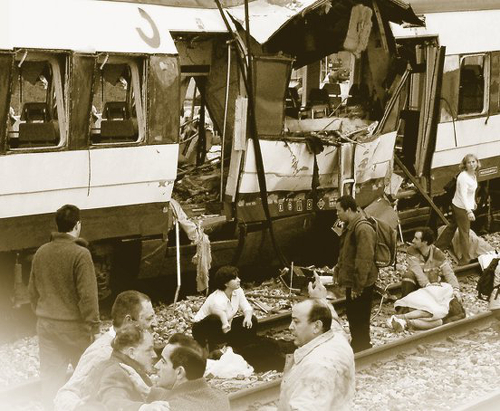
The September 11 attacks were neither the first nor the last time Dr. al-Zawahiri and al-Qaeda worked together. At the height of the morning rush hour on Thursday, March 11, 2004, 10 explosions ripped through trains in three bustling stations in Madrid, Spain, leaving in their wake 191 dead and 1,900 injured.
Six or more operatives had planted bombs timed for simultaneous detonation, a tactic aimed at amplifying the violence for greater psychological impact.
The meticulous planning began at least 10 months earlier, when Moroccan psychiatrist Abu Hafiza gathered a number of al-Qaeda agents from Saudi Arabia and took them to Fallujah, Iraq. Over the next few months, posing as a teacher from a religious school, Hafiza roamed Iraq to gather intelligence - on behalf of Dr. al-Zawahiri.
After completing his reconnaissance, Hafiza met with al-Zawahiri in August 2003, near the Pakistan-Afghanistan border, debriefing on his observations and making recommendations that ultimately took shape in the Spanish bombings.2
In March 2004, the one, same month as the Madrid bombings, The Times (of London) revealed that al-Qaeda used drugs to brainwash young men in Iraq to create suicide bombers. The process, experts say, involves the use of pain and drugs in combination with hypnosis.
According to Colonel Karim Sultan, police chief of Karbala, Iraq, "It's a long process to brainwash them. They seduce them with money, then start to use drugs on them until they are half-conscious."3
"They give their suicide bombers barbiturates, and the amphetamines are for street fighters who are facing off with the U.S.," a State Department analyst said.4
Psychiatrists and psychologists boast that they are able to program individuals into assassins. Long before anyone heard of a "Manchurian Candidate" - a person unwittingly programmed to kill by means of drugs and hypnosis - George Estabrooks, a psychologist and former professor at Colgate University in New York, reported the creation of operational Manchurian Candidates on the Allied side during World War II. "The key to creating an effective spy or assassin," he said, "rests in splitting a man's personality, or creating multi-personality, with the aid of hypnotism. This is not science fiction. This has and is being done. I have done it."5

Numerous studies have verified that psychotropic drugs can "take over the human mind against the will of the individual."
"Through the use of drugs," wrote Walter Bowart in Operation Mind Control, "the skilled mind controller could first induce a hypnotic trance. Then, one of several behavior modification techniques could be employed with amplified success. In themselves, without directed suggestions, drugs affect the mind in random ways. But when drugs are combined with hypnosis, an individual can be molded and manipulated beyond his own recognition."
Colin Ross, M.D., author of Bluebird: Deliberate Creation of Multiple Personality by Psychiatrists and an authority on coercive psychiatric methods, revealed that a variety of techniques could be exploited by a skilled psychiatric technician to program an individual to commit violent acts. Hypnosis exerts a more powerful influence when combined with drugs and pain.
Ross suspects the amount of suicide bombers programmed with drugs is "close to 100 percent."6
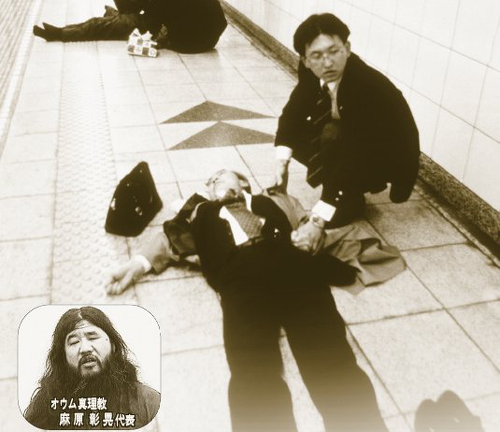
A few examples chillingly prove the premise that psychiatric or psychological influence is at the heart of international terrorism:
Dr. Masamitsu Sasaki, President of Aum Supreme Truth, Japan: On March 20, 1995, a lethal nerve gas attack on Tokyo's subway left 12 dead and more than 5,500 ill.7 The nerve gas used was sarin, a chemical developed for the Nazis during World War II.8 While the attack was ordered by the Aum leader, Shoko Asahara, it was Dr. Sasaki, Aum's president and a psychiatrist, who introduced psychotropic, stimulant and hallucinogenic drugs to the group. Another Aum physician, Ikuo Hayashi, testified that he used the barbiturate, sodium thiopental - a drug known to cause psychosis - and electroshock treatment to "remove [the] memory" of Aum adherents.9 Dozens of members died from sodium thiopental.
"Carlos the Jackal" (Illich Ramirez Sanchez): Originally from Venezuela, he was one of the most renowned "revolutionary terrorists." A 1969 graduate of Moscow's Patrice Lumumba University, where he trained in psychological terrorism and "brainwashing," "The Jackal" reportedly worked for Mohamar Qaddaffi of Libya and Saddam Hussein of Iraq. Responsible for numerous skyjackings and bombings, he was described as "a ruthless terrorist who operates with cold-blooded, surgical precision."
Dr. Aziz al-Abub (AKA: Ibrahim al - Nadhir): The psychiatrist behind the torture and murder of CIA Beirut station chief, Bill Buckley, al-Abub studied political persuasion, "brainwashing" and other psychological methods at the Patrice Lumumba campus in Moscow in the 1980s. He familiarized himself with the latest Soviet pharmacological techniques for "keeping a person passive over a lengthy period and reducing the will to resist." He provided "pep pills" for suicide-bombers and implanted them with the idea of the glory of sacrifice and dying. Today, al-Abub reportedly works in the Iranian prison system.10
Frantz Fanon: Fanon trained in France to become a psychiatrist. Blaming the West for dehumanizing local cultures, he preached that achieving freedom and mental health required acts of violence. In his book, The Wretched of the Earth, Fanon wrote, "Violence is a purifying force. It frees the native from his inferiority complex and from despair and inaction. It makes him fearless and restores his self-respect."
Dr. Norman Sartorius, former president of the World Psychiatric Association, said in 1994: "The time when psychiatrists considered that they could cure the mentally ill is gone. In the future, the mentally ill have to learn to live with their illness."

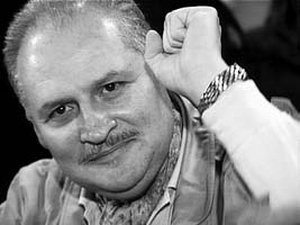
The Unabomber: In the U.S., Theodore Kaczynski delivered 16 package bombs to scientists, academicians, and others over 17 years, killing three people and injuring 23. Subsequent to his arrest, it was revealed that between 1959 and 1962, Kaczynski had been the subject of a disturbing mind control experiment aimed at measuring how people reacted under stress. That experiment run by Dr. Henry Murray at Harvard, was under the control of Sidney Gottlieb, a psychiatrist and head of the CIA's technical services division.11 According to Kaczynski, the intensive interrogation he was subjected to was "vehement, sweeping and personally abusive" and attacked his most cherished ideals and beliefs. Afterward, he started to have ideas about an "anti-technology ideology of revolution."
Richard Baumhammers: On April 28, 2000, in Pittsburgh, Pennsylvania, Baumhammers shot six people, killing five and paralyzing one. Prior to the killing spree, he had been under treatment by 12 different psychologists and psychiatrists and had taken up to 17 different psychiatric drugs.
The Oklahoma City Bomber: The bombing of the Alfred P. Murrah Federal Building in Oklahoma City was, at that time, the greatest act of terrorist violence ever committed in the U.S. According to David Hoffman in The Oklahoma City Bombing and the Politics of Terror, Timothy McVeigh had been a sergeant in the army and done courses in Psy-Ops (psychological operations) at Fort Riley. Psy-Ops is the study of psychology for military purposes with the primary purpose "to induce or reinforce foreign attitudes and behavior favorable to the originator's objectives." It can be used to "influence the emotions, motives, objective reasoning, or behavior of a targeted public."
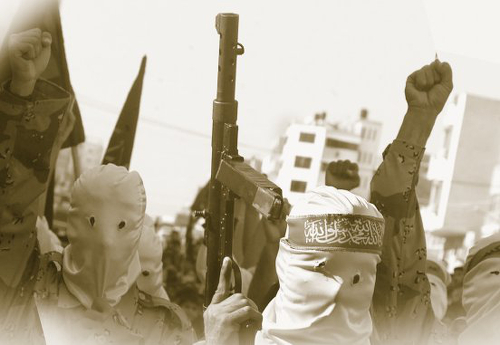
In 1955, a Soviet manual entitled, "Brainwashing: A Synthesis of the Russian Textbook on Psychopolitics" was translated and distributed as a public warning by a New York professor. Psychopolitics was described by the Soviets as the "art and science of asserting and maintaining dominion over the thoughts and loyalties of individuals ... and the conquest of enemy nations through `mental healing."'
It revealed, "The early Russian psychiatrists, pioneering this science of psychiatry, understood thoroughly that hypnosis is induced by acute fear. They discovered it could also be induced by shock of an emotional nature, by extreme privation, as well as by blows and drugs."12
During the Soviet era, Patrice Lumumba College and the Lenin Institute, both located in Moscow, trained students in social psychology, unarmed combat and guerrilla warfare. Between 1968 and 1975, an estimated 2,500 terrorists and guerrillas were trained there.
"The curriculum at Patrice Lumumba covered all aspects of the techniques of persuasion," including the means to "manipulate and, when needs be, coerce without resorting to physical force," wrote Gordon Thomas, author of Journey into Madness, Medical Torture and the Mind Controllers.
In the U.S., techniques were developed to "crush the human psyche to the point that it would admit anything," stated CIA mind control psychiatrist Sidney Gottlieb. British psychiatrist William Sargant, Gottlieb's peer, advised the use of drugs on "resistant sources," noting that the drugs' "function is to cause capitulation, to aid in the shift from resistance to cooperation."13
Psychiatric experts advising governments on terrorism also argue that the madmen are perfectly sane.
Dr. Adel Sadeq, Chairman of the Arab Psychiatrists' Association, and head of the Department of Psychiatry at Cairo's Ein Shams University, explains it this way: " ... The psychological structure [of the suicide attacker] is that of an individual who loves life. This may seem strange to people [who] are incapable of understanding [the suicide attack] because their cultural structure has no concepts such as self-sacrifice and honor."14
Dr. Jerrold M. Post, a psychiatrist, political psychology "expert" and former CIA analyst, says that terrorists are not psychopaths "but use psychological strategy for political change."15
According to Post, Saddam Hussein is not "irrational," "impulsive" or suffering from a psychotic disorder. Yet this is the man who waged a savage war on Iran between 1980 and 1988, imprisoned and then executed 8,000 members of the Kurdish resistance, and used chemical weapons against Kurdish villages in his own country that killed 5,000 and left 45,000 injured. Post claims that Hussein merely has a "paranoid outlook" and that his troubles "can really be traced back to the womb."16
From glorifying the blatantly criminal acts of suicide bombers, to reducing the hideous acts of a maniacal murderer to psychological or biological bad luck, psychiatrists on both sides of the terrorist conflict share the same twisted perspective on the criminal mind. This perspective protects and denies the dangerousness of the criminal, at the expense of honest citizens.
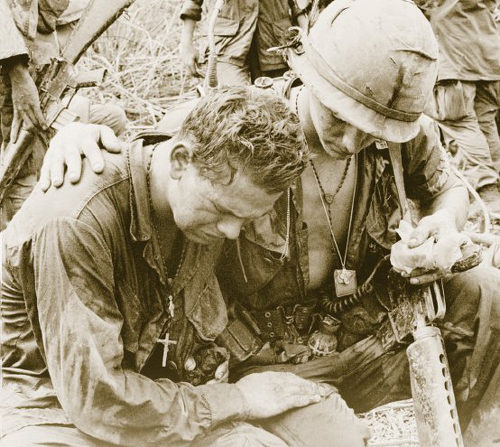
Terrorism and war in Iraq have been a cash cow for psychiatrists in the U.S. In March 2003, The New York Times reported: "Military psychiatrists, psychologists, social workers and other mental health workers are present [in Iraq] to offer treatment on the forward lines."
Soldiers have been handed antidepressants known to have violence- and suicide-inducing properties. The drugs can also cause anxiety, agitation, insomnia, bizarre dreams, confusion, and akathisia (an inability to keep still) that can lead to violent behavior.
On April 30, 2004, television stations around the world broadcast graphic pictures of Iraqi prisoners being tortured and abused by U.S. soldiers in the Abu Ghraib prison outside of Baghdad, Iraq.17 However, what wasn't known then was that psychiatrists had been dispensing psychoactive drugs to servicemen and women in the prison. Specialist David Bischel reported, "Combat Stress Management was handing out Prozac and Paxil like crazy" to those who staffed the prison, "trying to get a handle on the frustration and depression."18
Passing out known, violence-inducing antidepressants to soldiers who are responsible for keeping the peace is, at best, ill advised, at worst, psychiatric criminal abuse.
Within days of the 9/11 attacks, psychiatrists were predicting that as many as 30% of people affected by the recent attacks would develop post-traumatic stress disorder (PTSD). Three billion dollars were desperately needed, they claimed, for treating the mental health problems in New York alone.
Three American psychiatrists coined the term PTSD in the wake of the Vietnam War and lobbied for its inclusion in the 1980 edition of the American Psychiatric Association's (APA) "billing bible," The Diagnostic and Statistical Manual of Mental Disorders (DSM).
Professors Herb Kutchins and Stuart A. Kirk, authors of Making Us Crazy, say that most of the soldiers suffered the effects of participating in "atrocities, seeing grotesquely mutilated bodies, or going on particularly dangerous missions." Those who suffered the mental effects of this were experiencing battle fatigue, or in other words, exhaustion, not "mental illness."
Today, post traumatic stress disorder has become "stretched and blurred," says Tana Dineen, Ph.D., author of Manufacturing Victims. There are some 175 combinations of symptoms by which PTSD can be diagnosed. "The application of PTSD has resulted in everything being pathologized until the only way to be is to be `abnormal,"' Dr. Dineen said.
Kutchins and Kirk further stated that PTSD "has become the label for identifying the impact of adverse events on ordinary people. This means that normal responses to catastrophic events have often been interpreted as mental disorders."
With PTSD "authenticated" through its inclusion in the DSM, psychiatrists paved the way for millions of dollars in funding to psychiatry cashing in on trauma.
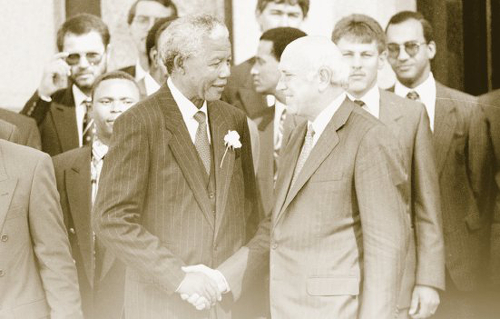
Psychiatry represents a destructive instrument of social control. Its methods of mind and behavior control continue to wreak misery on an international scale.
It is essentially the reverse of the path that brought us into this madness. If we care anything at all about the quality of life for ourselves, our children, and the future, we must consider this. This is not a nightmare we will wake from until change takes place.
Like the delinquent youth who has abandoned his upbringing and taken up with bad company, we must ask ourselves whether we want to keep company with a crowd that has no future - with "professionals" who will likely destroy us.
If we are to bring man's inhumanity to man to an end, it must be realized that the real enemy is psychiatrists and psychologists skilled in and driven by the manufacture of death, destruction and chaos.
Only in the absence of psychiatry and psychology will man's true humanity to man become fully evident.

1 Government, criminal, educational, judicial and other social agencies should not rely on the DSM and no legislation should use this as a basis for determining the mental state, competency, educational standard or rights of any individual. Psychiatric abuse is the lethal weapon that has sparked the explosion of international terrorism. Mind and behavior control must be exposed, outlawed and sanctioned in every country in the world.
2 Individuals who employ pernicious psychiatric methods to manufacture terrorists should be identified and placed at the forefront of the Most Wanted List of International Terrorists. The only way to win the War on Terrorism is to render the psychiatrists behind the manufactured murderers inoperative.
3 Taxpayers' money should not be used to fund psychiatry's unworkable methods and "treatment" for "diseases" that cannot be scientifically verified. PTSD is not a "disease" - it is a normal reaction to a terrifying situation.
Caution: No one should stop taking any psychiatric drug without the advice and assistance of a competent non-psychiatric medical doctor.
This publication was made possible by a grant from the United States International Association of Scientologists Members' Trust.
PHOTO CREDITS: Cover: Andrea Comas/Reuters/Corbis; 2: New York Magazine; 4: Landov; 6: Corbis; 8: Reuters/Corbis; Tokyo Shimban/Corbis; AP Wide World Photos; 10: AP Wide World Photos; Corbis; 11: Reuters/Corbis; 16: Bettman/Corbis; 18: David Turnley/Corbis.
© 2004 CCHR. All Rights Reserved. CITIZENS COMMISSION ON HUMAN RIGHTS, CCHR and the CCHR logo are trademarks and service marks owned by Citizens Commission on Human Rights. Printed in the U.S.A. Item #FLO 19137